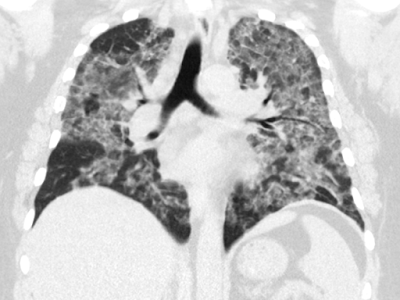By Sheri Fink
The latest miracle machine (click here) in modern medicine — whose use has skyrocketed in recent years — is saving people from the brink of death: adults whose lungs have been ravaged by the flu; a trucker who was trapped underwater in a crash; a man whose heart had stopped working for an astonishing seven hours....
During a surge of coronavirus cases (click here) at Houston Methodist Hospital last summer, a patient in his 40s on a ventilator was declining. There was one more option, a last-resort treatment that can mechanically substitute for badly damaged lungs.
But that day, the slots designated for the intensive treatment, called ECMO, were filled. One patient, a man a decade older, had been receiving the therapy for over a month. Doctors had concluded he had almost no chance of recovery, and had recommended several times stopping the treatment, but his relatives were not ready to let him go.
“We have to push some more,” said Dr. Sarah Beshay, a critical care physician, because the younger patient “needs a chance too.”
That afternoon, she called the older man’s daughter, who had not been allowed to visit because of Covid restrictions. Explaining that the therapy was in scarce supply, the physician said, “It’s a matter of using the available resources in the wisest way possible.”...
But that day, the slots designated for the intensive treatment, called ECMO, were filled. One patient, a man a decade older, had been receiving the therapy for over a month. Doctors had concluded he had almost no chance of recovery, and had recommended several times stopping the treatment, but his relatives were not ready to let him go.
“We have to push some more,” said Dr. Sarah Beshay, a critical care physician, because the younger patient “needs a chance too.”
That afternoon, she called the older man’s daughter, who had not been allowed to visit because of Covid restrictions. Explaining that the therapy was in scarce supply, the physician said, “It’s a matter of using the available resources in the wisest way possible.”...
Remember this? Vaping? It is still a problem. ECMO maintained the lives of young people while they awaited a lung transplant. This technology and it's use is vital to maintaining lives that are attacked by lung disease. This miracle machine is not an excuse for incompetent government or exploitive commercial ventures.
By Drs, Norbert Herzog and David Niesel
In 2019, a national poll (click here) revealed that 8 percent of people in the United States had used a vaping product in the previous week.
Some argue that vaping is a safe alternative to tobacco products, but the safety is still being determined. A recent study reported that a third of people who vape experience symptoms of damage to lungs or the respiratory tract.
EVALI, or electronic cigarette- or vaping-associated lung injury, includes symptoms such as cough, shortness of breath, chest pain, nausea, diarrhea and sometimes fever or chills. Some have reported symptoms after only a few days, and for others, they appear after weeks of vaping.
E-cigarettes also are called vapes, e-hookahs, vape pens, tank systems, mods and electronic nicotine delivery systems. They’re battery-powered devices that heat a liquid to produce an aerosol that’s inhaled. The vaping liquid can contain nicotine or tetrahydrocannabinol, the psychoactive component of marijuana, flavorings and other additives.
In a recent study, 1,400 people who vaped were asked to list the devices and products they used and report any symptoms they experienced. More than half of them had one or more symptoms, and one-third reported EVALI symptoms, especially cough or nausea. People who used refillable devices or cartridges and people who used flavored liquids had a higher likelihood of showing symptoms....




